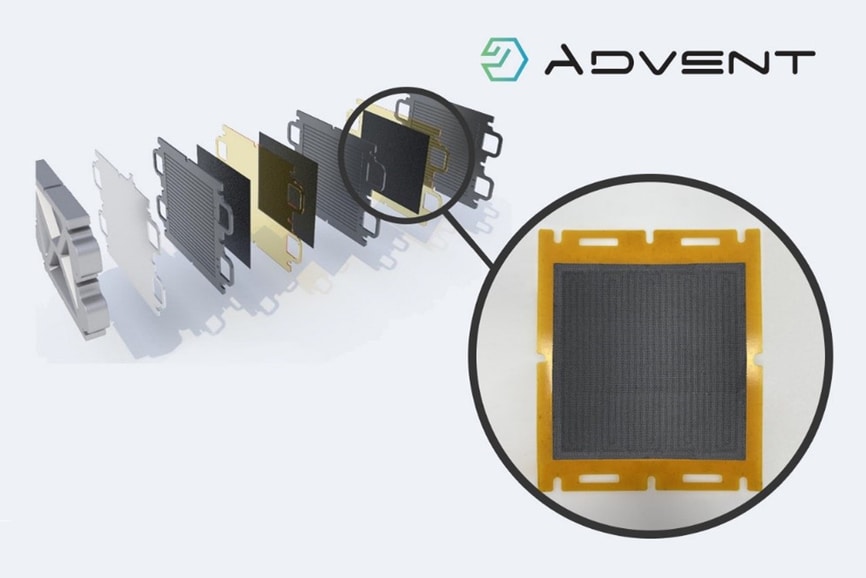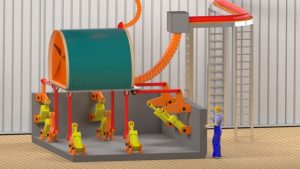The new MEA – the heart of the fuel cell – is currently being developed within the framework of L’Innovator, Advent’s joint development program with the U.S. Department of Energy’s Los Alamos National Laboratory (LANL), Brookhaven National Laboratory (BNL), and National Renewable Energy Laboratory (NREL).
The company has already distributed samples of its MEAs to major original equipment manufacturers for test and evaluation and intends to scale up the production capacity of MEAs in the order of 100s of kWs (fuel cell power equivalent) per month in mid-2023 and MWs per month by the end of 2023.
Lowgrade hydrogen
Dr. Vasilis Gregoriou, Advent’s Chairman and CEO, said: “We will soon be able to manufacture fuel cells that last at least three times as long and have double the power density of our previous systems. This development will revolutionize the fuel cell industry. These will be the first PEM-based fuel cells worldwide that can consistently operate above 100oC for more than 10,000 hours and are ideal for heavy-duty mobility. In addition, the HT-PEM technology can support multiple fuels, efuels, and low-grade hydrogen on board and operate under extreme conditions (-38oC to +50oC). The above is essential for mobility and off-grid applications and clearly separates us from current PEM technology competitors. Since our IPO only a year ago, our goal has been to reduce the total cost of ownership of fuel cells to the point that we can replace diesel generators and combustion engines. The mandate from the aerospace, marine, and heavy-duty automotive industry is clear: they want to move to high-temperature fuel cell technology. We believe that we will be able to provide the best product at the best price. We are looking to form Joint Development Agreements with select strategic partners that will enable them to bring the next generation of fuel cells to the market, therefore replacing the need for conventional fuels while producing clean power.”






